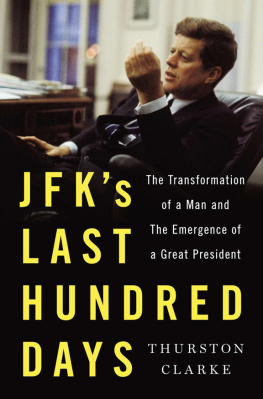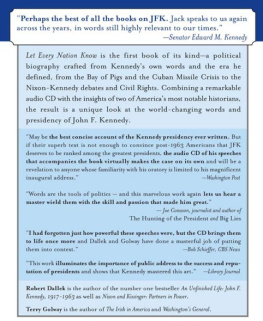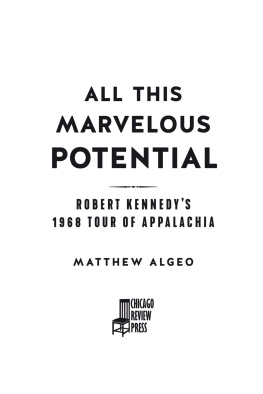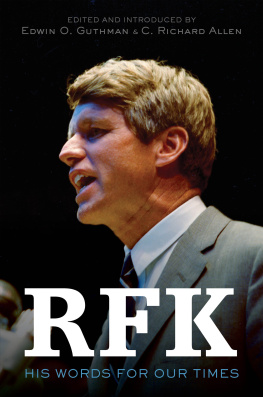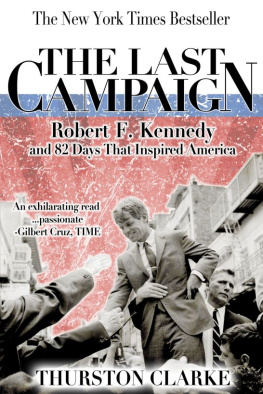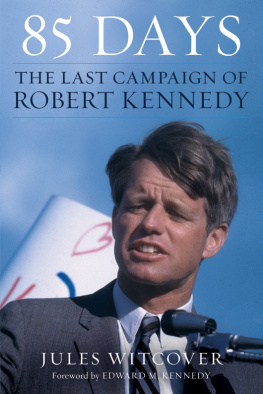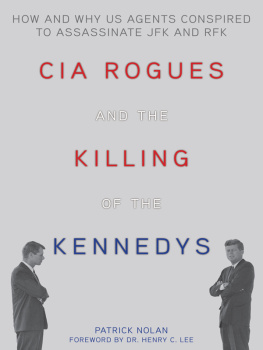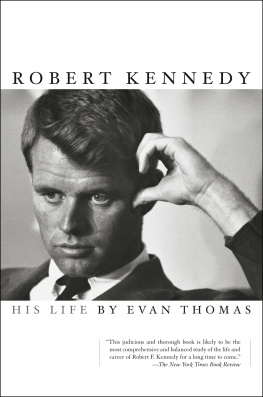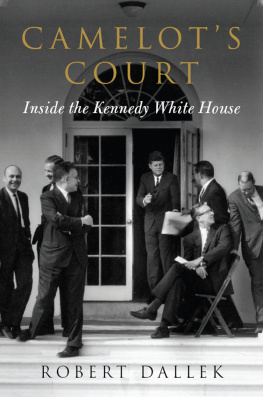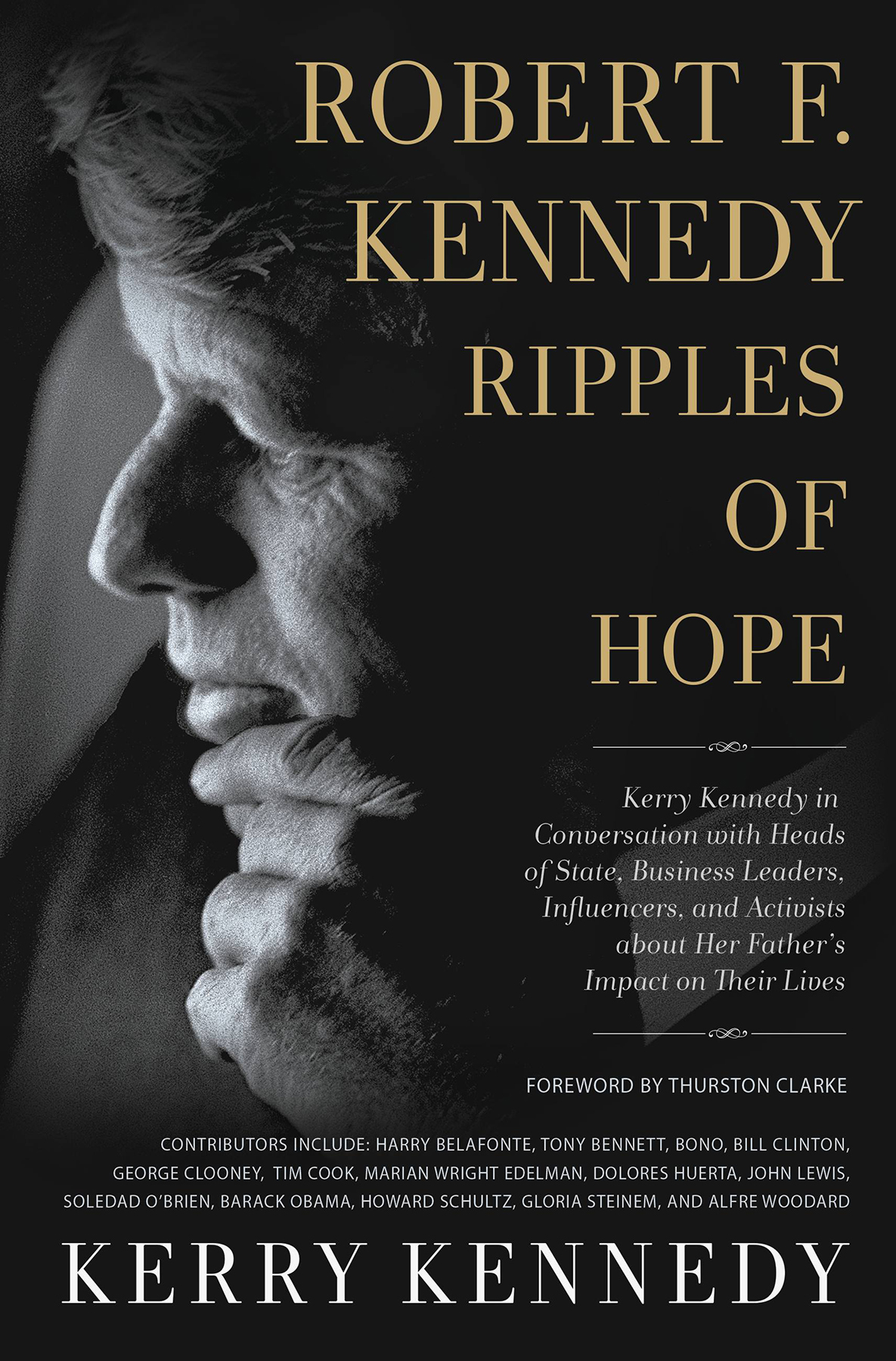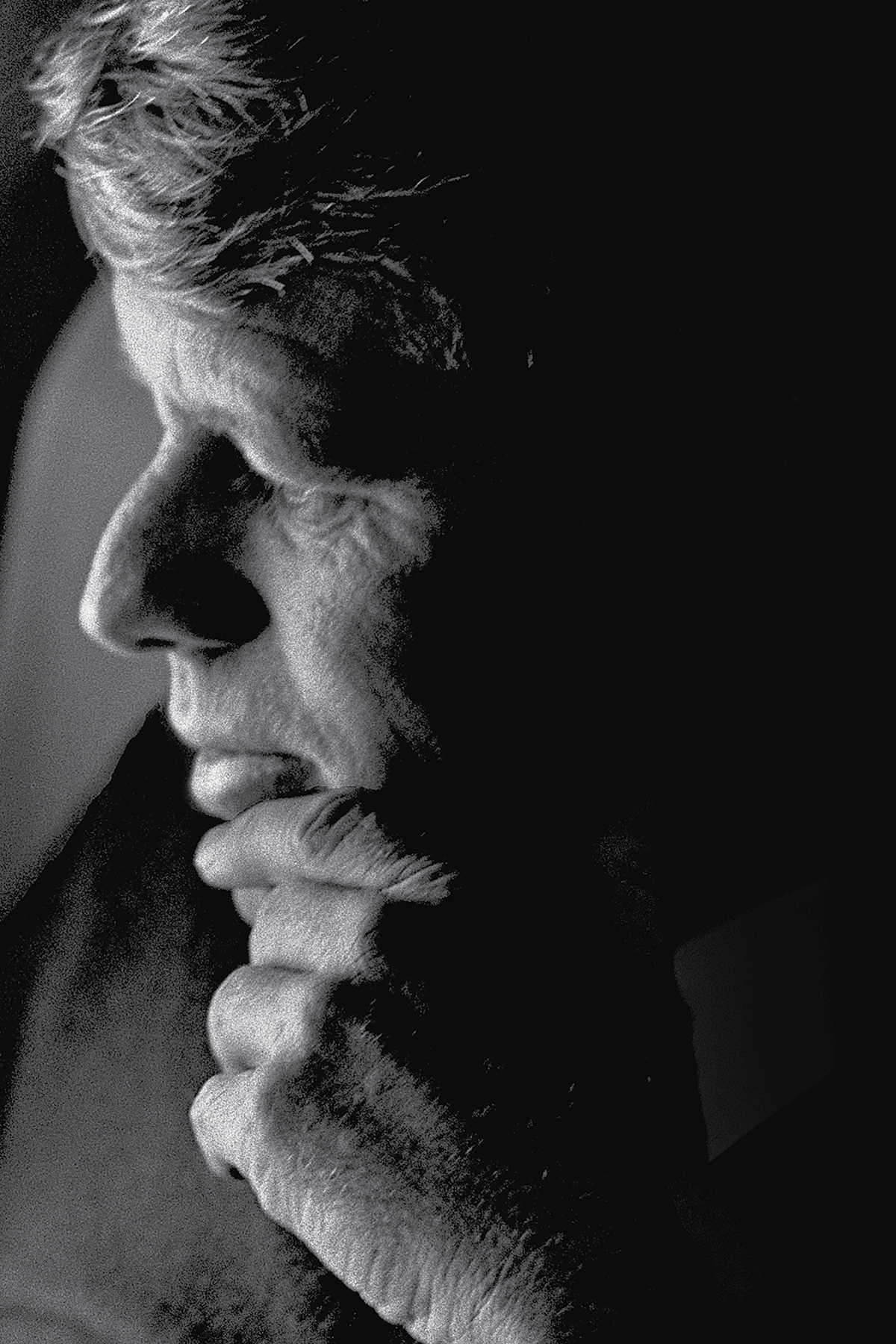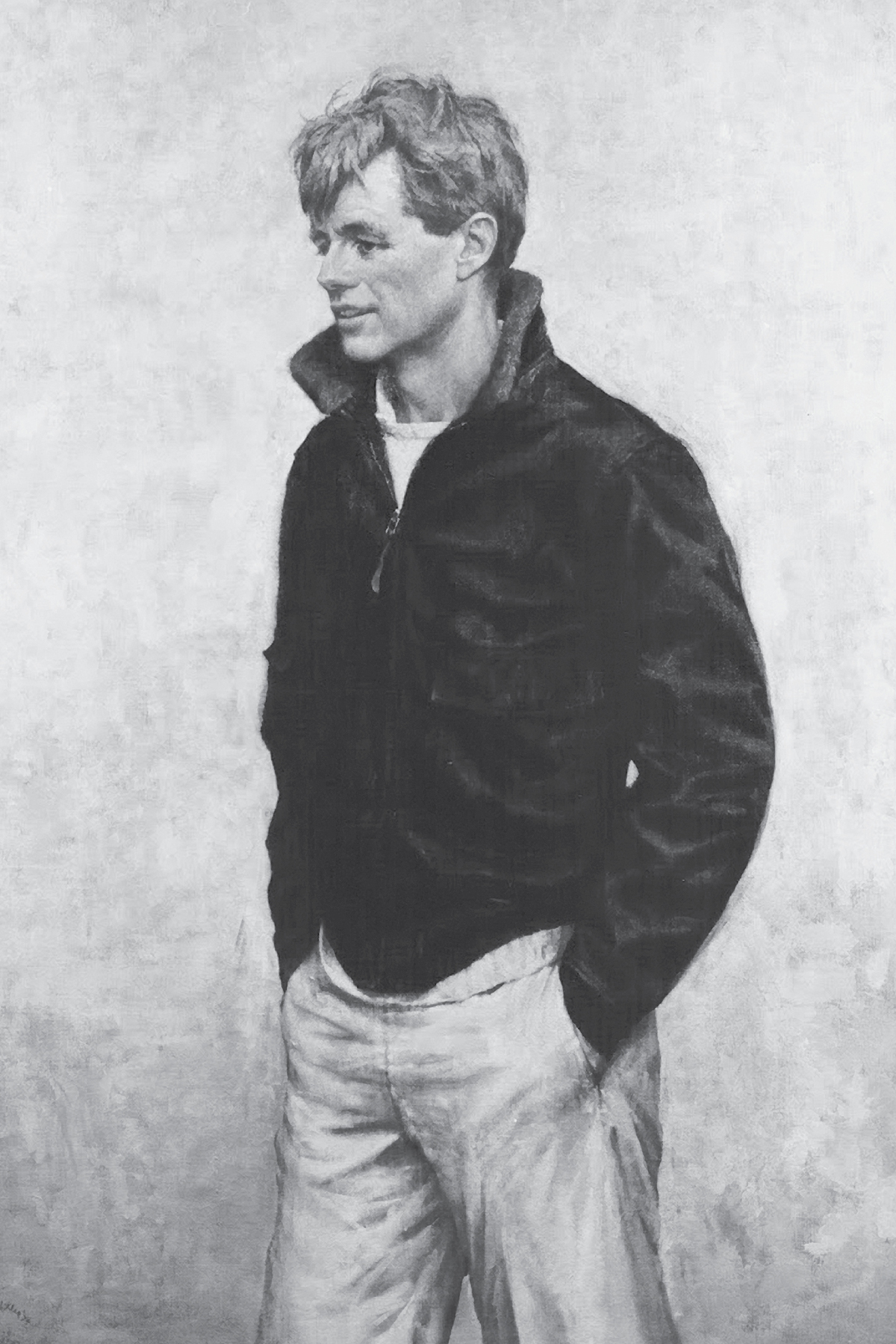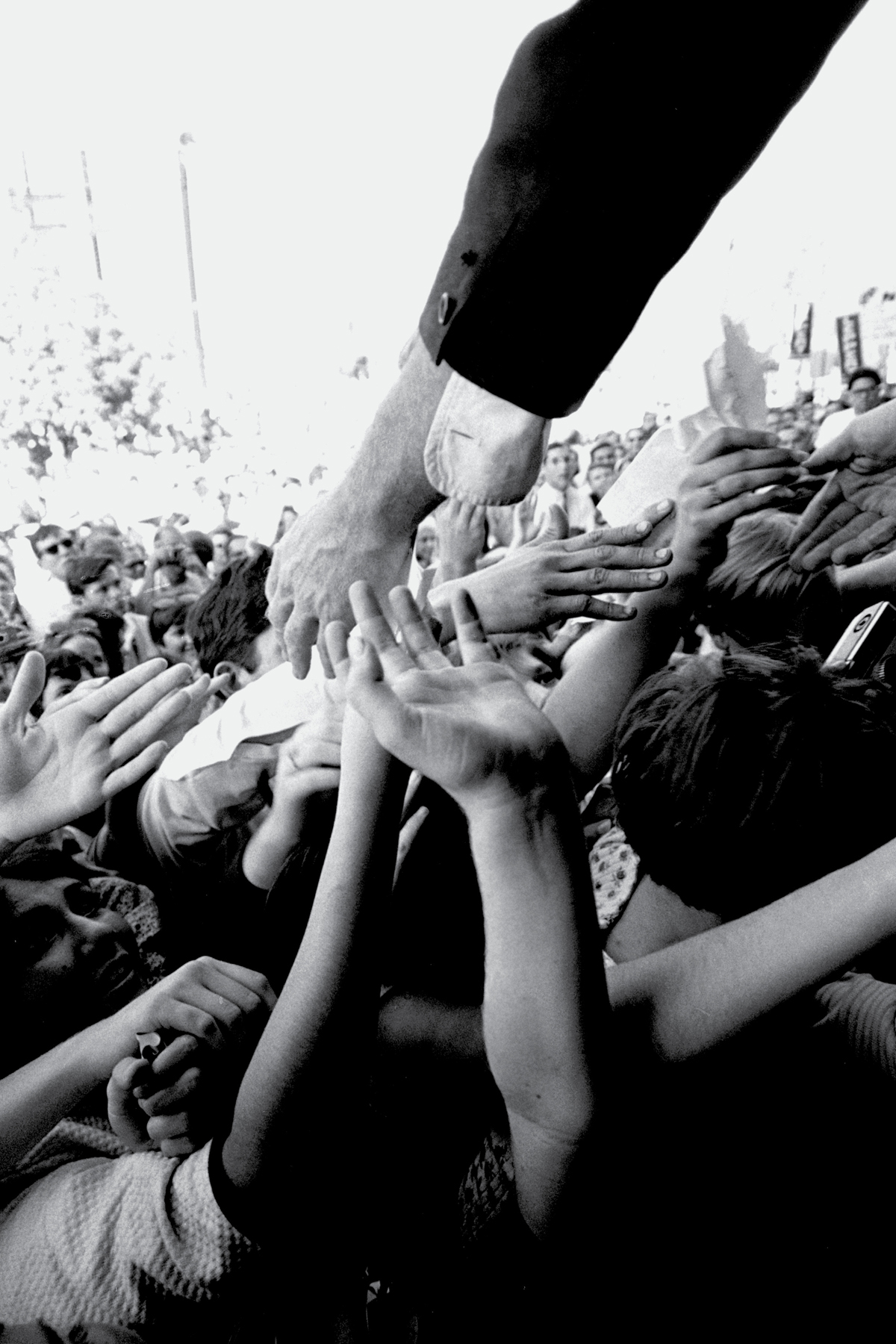Clarke Thurston - Robert F. Kennedy: ripples of hope: Kerry Kennedy in conversation with heads of state, business leaders, influencers, and activists about her fathers impact on their lives
Here you can read online Clarke Thurston - Robert F. Kennedy: ripples of hope: Kerry Kennedy in conversation with heads of state, business leaders, influencers, and activists about her fathers impact on their lives full text of the book (entire story) in english for free. Download pdf and epub, get meaning, cover and reviews about this ebook. City: United States, year: 2018, publisher: Center Street Large Print, genre: Politics. Description of the work, (preface) as well as reviews are available. Best literature library LitArk.com created for fans of good reading and offers a wide selection of genres:
Romance novel
Science fiction
Adventure
Detective
Science
History
Home and family
Prose
Art
Politics
Computer
Non-fiction
Religion
Business
Children
Humor
Choose a favorite category and find really read worthwhile books. Enjoy immersion in the world of imagination, feel the emotions of the characters or learn something new for yourself, make an fascinating discovery.

- Book:Robert F. Kennedy: ripples of hope: Kerry Kennedy in conversation with heads of state, business leaders, influencers, and activists about her fathers impact on their lives
- Author:
- Publisher:Center Street Large Print
- Genre:
- Year:2018
- City:United States
- Rating:3 / 5
- Favourites:Add to favourites
- Your mark:
Robert F. Kennedy: ripples of hope: Kerry Kennedy in conversation with heads of state, business leaders, influencers, and activists about her fathers impact on their lives: summary, description and annotation
We offer to read an annotation, description, summary or preface (depends on what the author of the book "Robert F. Kennedy: ripples of hope: Kerry Kennedy in conversation with heads of state, business leaders, influencers, and activists about her fathers impact on their lives" wrote himself). If you haven't found the necessary information about the book — write in the comments, we will try to find it.
Clarke Thurston: author's other books
Who wrote Robert F. Kennedy: ripples of hope: Kerry Kennedy in conversation with heads of state, business leaders, influencers, and activists about her fathers impact on their lives? Find out the surname, the name of the author of the book and a list of all author's works by series.

